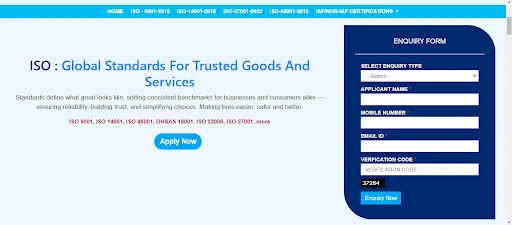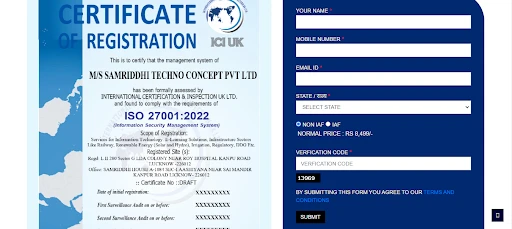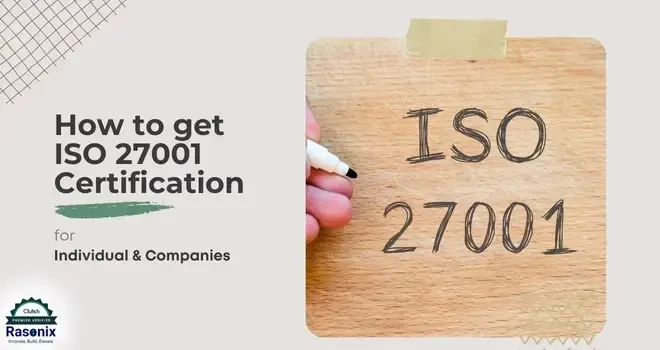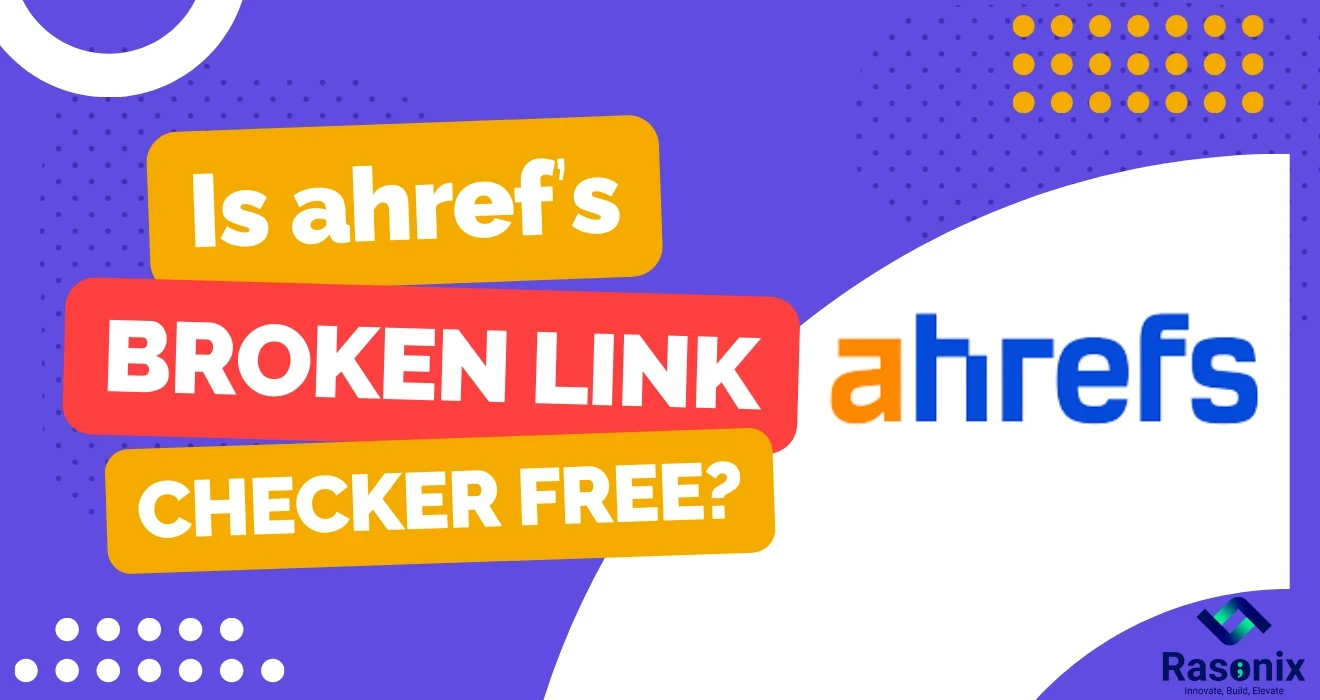Every business runs on data now. Keeping that data safe is mandatory. Are you an IT expert building your cyber career? Is your company trying to earn client loyalty? ISO 27001 is key to both goals. But, where do you start with ISO 27001 Certification?
When people first look at this standard, two questions always come up.
1. How to become iso 27001 certified?
2. What steps does my business take to get certified?
This guide explains everything. We outline the full process. The focus is mainly on India, but the steps apply worldwide.
What is ISO 27001?
ISO 27001 is the top global rule for safe data. It builds an Information Security Management System, or ISMS. This standard gives any company a strong security plan. It helps firms manage security threats. It ensures private data stays protected. Using this international standard helps businesses follow local and world privacy laws.
Consider it your company's security roadmap. It names the tools you need. It teaches how to find and fix weak points. It details how to keep customer data safe. This process proves to clients and auditors that your security is reliable.
The company earns the official certification for its ISMS. People do not get that specific company certificate. Instead, people get trained for ISO 27001 Certification individuals. These include Foundation, Lead Implementer, or Lead Auditor courses.
Can an Individual be ISO 27001 Certified?
Let us clear up a common mistake right away. You cannot get an ISO 27001 Personal certification. Only entire businesses or groups get this title. The certificate is for the whole organisation, not for one expert. Still, you can earn professional training certificates linked to ISO 27001 work.
Popular ISO 27001 Training Certificates:
- ISO 27001 Lead Auditor
- ISO 27001 Lead Implementer
- ISO 27001 Internal Auditor
- ISO 27001 Foundation
- ISO 27001 Risk Manager
Trusted providers teach these courses. They help IT workers grow their cybersecurity careers. These qualifications unlock compliance and auditing jobs. You might manage ISO setup projects at major firms. You could also work as a consultant or a private auditor.
ISO 27001 for Indian Companies
Small companies and large firms alike can earn ISO 27001 status. They must first build their ISMS. Then they pass checks done by approved audit groups.
This certificate shows that a company takes data security seriously. It protects client data and staff records. The ISMS covers cloud services and all IT systems. It helps ensure the business runs smoothly.
The steps are the same for a Bengaluru startup or a Mumbai corporation. Only the scope changes with size. The amount of paperwork and risk details scale up or down.
Why ISO 27001 Matters for Companies in India
Indian companies increasingly seek this approval. Foreign clients often require it now. This is common when dealing with partners in the US, UK, or Europe. Many government contracts list ISO 27001 as a must-have.
Cyberattacks are rising every year. The certificate quickly builds customer faith. It helps firms get noticed in crowded markets. It enforces a strong security mindset internally.
IT groups, SaaS firms, and outsourcing services need it. Financial startups and non-profits are also moving toward this standard.
Steps to Get ISO 27001 Certification for Companies in India

These are the six important steps you should follow before applying for an ISO 27001 certificate:
Step 1: Conduct a Gap Assessment
This is your baseline. A consultant or in-house team checks:
- What security measures do you already have
- What is missing compared to the ISO 27001 requirements
- What risks are unmanaged
- What documentation gaps exist
This step helps you understand the actual work required.
Step 2: Define the ISMS Scope
You decide:
- Which locations are included
- Which business processes are covered
- Whether you want full-company certification or only certain departments
Example:
A SaaS company may certify only its product operations department.
Step 3: Conduct Risk Assessment & Treat Risks
ISO 27001 is risk-driven. Your team must identify:
- Security risks
- Threats and vulnerabilities
- Business impact
- Treatment options (reduce, transfer, avoid, accept)
You also build a Risk Register that auditors will review.
Step 4: Build ISO 27001 Documentation
Documentation is not optional. Companies must prepare:
- ISMS Manual
- Policies (InfoSec Policy, Access Control, Backup, Asset Management, etc.)
- Procedures
- SoA (Statement of Applicability)
- Risk Treatment Plan
- Internal audit program
- Incident Management procedure
These documents collectively prove that you follow ISO 27001’s structure.
Step 5: Implement Security Controls
ISO 27001 has 93 Annexe A controls under themes like:
- Access control
- Asset management
- Cryptography
- Logging and monitoring
- Supplier security
- Cloud security
- Backup and recovery
- Incident response
- Secure coding
- Business continuity
Your company must apply the controls relevant to your environment.
Step 6: Conduct Internal Audit
An internal audit ensures that your ISMS is functioning properly before external auditors arrive.
This step is mandatory and must be documented.
Step 7: Conduct Management Review
Senior management must formally review:
- Audit findings
- Non-conformities
- Objectives
- Risk performance
This proves leadership involvement.
Step 8: External Audit - Stage 1 (Documentation Audit)
An accredited external auditor reviews your documents to ensure that everything meets the requirements of ISO 27001.
Step 9: External Audit - Stage 2 (Implementation Audit)
This is the final audit where the auditor checks:
- Whether controls are implemented
- Whether records exist
- Whether employees follow policies
- Whether security measures are working
If everything is in order, you get ISO 27001 certified!
How to Register for the ISO 27001 Certificate Online?
For the people who are wondering about registering for the ISO certificate online, here are a few simple steps:
- On your browser, visit ISO Registrar Official Website and search for ISO 27001.

- Now, you can see an ISO 27001 Registration form appearing on the screen.

- Fill out the form with the correct details and submit it.
- Once done, make the payment. And the registration is done.
The ISO Registration body will notify you about the physical visit within a few business days. Moreover, you can see the exact cost of the registration while filling out the form.
How Long Does It Take to Get ISO 27001 Certification?
The amount of time depends on a few factors. How organized is your security right now? How fast can your team finish the needed paperwork? How involved are your senior managers? How complex is your company's IT network?
| Company Size |
Time Needed |
| Small companies or startups |
6 to 10 weeks |
| Mid-size companies |
3 to 4 months |
| Large enterprises |
4 to 7 months |
Costs for Individuals
Training and exam fees usually fall in these price ranges. ISO 27001 individual certification cost vary greatly between online and classroom study.
| Course |
Cost Range (₹) |
| ISO 27001 Foundation |
8,000 to 15,000 |
| ISO 27001 Internal Auditor |
12,000 to 22,000 |
| ISO 27001 Lead Implementer |
20,000 to 45,000 |
| ISO 27001 Lead Auditor |
25,000 to 55,000 |
Costs for Companies
The total cost for company certification changes based on size. The number of office locations matters. Employee headcount affects the price. Paperwork needs to change the budget. External audit fees are the largest expense. Remember to plan for check-up audits in years two and three.
| Company Size |
Total Cost (₹) |
| Small businesses (1 to 25 staff) |
80,000 to 1.8 lakh |
| Medium companies (25 to 200 staff) |
1.8 to 4.5 lakh |
| Large companies (200+ staff) |
5 to 12 lakh |
Who Can Certify Your Company?
ISO 27001 can only be issued by accreditation bodies.
Popular ones include:
- TÜV
- BSI
- DNV
- IAS-accredited bodies
- UKAS-accredited bodies
- NABCB-accredited bodies (Indian government accreditation)
Always choose a certification body that is accredited; this ensures validity globally.
Documents Required for ISO 27001 Certification
Companies typically prepare:
- ISMS Scope
- Information Security Policy
- Risk Assessment Report
- Access Control Policy
- Supplier Security Policy
- Backup & Restore Policy
- Asset Register
- Incident Register
- Internal Audit Reports
- Statement of Applicability
These documents prove your ISMS is properly implemented.
ISO 27001 Certification Process for the Global Audience
While the steps remain mostly the same worldwide, here are a few differences for global companies:
In Europe
GDPR compliance is heavily integrated with ISO 27001 implementation.
In the US
Companies often integrate ISO 27001 with SOC 2 controls.
In the Middle East
Government clients frequently demand mandatory ISO certifications.
In Southeast Asia
Startups use ISO 27001 to build trust in cloud services and B2B contracts.
Cost differences
For global businesses, certification costs are usually slightly higher due to:
- Multinational operations
- Complex IT infrastructure
- Multi-country audits
ISO 27001 Certification vs ISO 27001 Training
| What they get |
Training certificates |
ISO 27001 certificate |
| Purpose |
Skill development |
ISMS compliance |
| Validity |
Lifetime (usually) |
3 years (with annual audits) |
| Examples |
Lead Auditor, Implementer |
Full ISMS certification |
This is one of the most misunderstood areas; many professionals assume they can “be ISO certified,” but only organizations can.
Common Mistakes Companies Make (Avoid These!)
- Treating ISO 27001 as a documentation exercise
- Copy-pasting generic templates
- Ignoring risk assessment
- Postponing internal audits
- No employee training or awareness
- Choosing a non-accredited certification body
- Rushing implementation just to win a tender
Avoiding these mistakes makes the certification journey smoother and more credible.
Conclusion
Whether you’re an individual looking to grow your cybersecurity expertise or a company trying to build trust and win bigger clients, ISO 27001 is one of the smartest investments you can make.
- Companies gain credibility.
- Individuals gain career growth.
- Clients gain confidence.
- Security becomes a culture, not a checkbox.
Achieving ISO 27001 certification is a journey, not a destination. By investing in information security and implementing an effective ISMS, organizations can reap significant benefits, including enhanced security, increased customer trust, and a strong competitive advantage in today's digital world.
At Rasonix, we've been on the ISO journey ourselves. We're certified to ISO 9001, 27001, and 27701, so we know firsthand the dedication and commitment required to build and maintain a strong management system. These certifications are not just pieces of paper to us; they reflect our unwavering commitment to excellence and continuous improvement.
As an ISO Certified Company, we deeply consider the quality management service. We understand that a strong management system is the foundation for any successful organization. Our certificate reflects our dedication towards the quality standards, unwavering commitment to customer service, and data privacy. Partner with Rasonix and begin your journey towards excellence.
Frequently Asked Questions
1. How do I get ISO 27001 certified as an individual?
Enrol in ISO 27001 training programs like Lead Auditor or Implementer.
2. How do companies get ISO 27001 certification?
Through documentation, risk assessment, internal audit, and external audits.
3. How long does ISO 27001 certification take?
Anywhere from 2 to 6 months, depending on company size.
4. Is ISO 27001 difficult to achieve?
It’s easier with proper guidance and expert documentation support.
5. Can small startups get ISO 27001 certified?
Absolutely. Many Indian startups pursue certification to attract international clients.
6. What is the fastest way to obtain ISO 27001 certification?
Hire an experienced implementation partner and keep the scope limited.
7. What is the salary of an ISO 27001 implementer?
A professional ISO 27001 Implementer's salary may range from 10 lakhs to 60 lakhs per year.





















 Subscribe Now
Subscribe Now